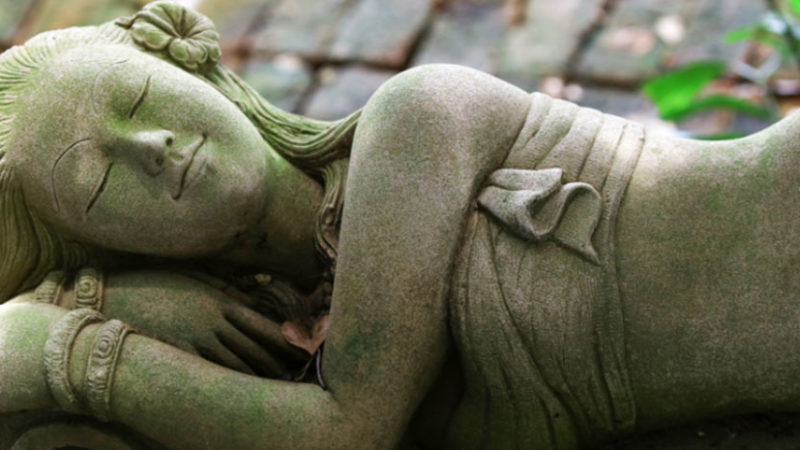I Did a 40-Day Rest Cleanse and Here’s What Happened
For 40 days, I had the most soulful rest. And I did it in the comfort of my own home, with a full-time job, a family, and a social life.
Every day I awoke around 5:30 am and tiptoed to my Rest Cave (set up in a corner of our spare room). I laid on my back on an exercise mat (under my favorite blanket with a sleep mask) and plugged earbuds into my phone. Then I hit play on Karen Brody’s Daring to Rest yoga nidra meditation and let her soothing guidance lull me into a state of deep rest—or as Karen puts it, a return to myself. If you’re not familiar with yoga nidra, it’s a meditative practice for entering one of the deepest states of relaxation imaginable. And you do it lying down.
I’m not a morning person, but getting up to lie down (ironic, right?) was lovely. The stillness of the early morning quickly became my friend.
For the first 15 days, I listened to the Rest Meditation (20 minutes) to shed physical exhaustion, followed by 15 days of the Release Meditation (30 minutes) to let go of limiting beliefs. The last 10 days consist of the Rise Meditation (40 minutes), allowing life purpose exhaustion to lift, so that you can hone in on your true-hearted desires. Every five days I read a chapter in the book itself, Daring to Rest, for insight into what I was experiencing and supportive practices.
Gradually these aspects of my life began to shift—providing a depth of experience new to me, and oh so, beautiful.
- An underlying sense of sweetness in my day. I discovered a natural flow to my day, felt light and at ease in my skin, and second-guessed myself less.
- Deep intuition. Karen guided me to breathe in through my heart, then follow my breath, see where it landed, and listen for what she calls a “soul whisper”—a word or image that offers a clue to how you’re really feeling. Some days all I could think about was my to-do list or obsess over a worry. But when my soul whispers did arrive, they were often crystal clear and I journaled about them.
- Patience and connection. Mornings were less frantic. When my seven-year old son had stressful moments getting ready for school, I felt calmer and more present for him. When we walked to the bus stop, my awareness of the outdoor world was more acute—the blue sky, cloud formations, the crescent of a morning moon.
- Craving control. On days when I felt overwhelmed or anxious, my inclination to relieve those feelings with a glass of wine or binging on television lessened. Sometimes I would simply sit, gaze outdoors, and do nothing more. In those moments, I loved not feeling the need to do anything—not clean, not sort the mail, not check Facebook. I began to understand rest outside of my Rest Cave.
- A connection to beyond. This was a big one. Karen calls it your “council of women” and teaches you to summon it for love and support. It can be women in your circle, women who have passed, even women you don’t know personally. I saw my grandmother (who died before I was born) looking at me lovingly and felt my sister-in-law, who I’ve known since I was a baby, standing beside me. At times the feeling of these and other women was so strong that tears ran down my cheeks.
While my life became deeper and rosier, it was not until I went cold turkey for a few weeks that I realized just how powerful this rest cleanse was. I’ve always been someone who can go the distance, then neglect the sustaining part, like training for a half-marathon but not running for months after the race. And it’s so easy to fall back into old habits.
So now I’m learning how to translate this cleanse into an ongoing practice, for which Daring to Rest offers sound insights. My Rest Cave is an essential element. It’s not only a dedicated space for yoga nidra, but one for self-care in general—to journal, to listen to music, to just be.
Karen ends every yoga nidra meditation with the words, “Be good to yourself.” And in that spirit, I invite you to download her free Rest Cave Guide to create your own. And once you do, I dare you to rest and see what happens!
Christine Day has been a member of Sounds True’s sales and marketing team for more than five years and loves diving into our books on a personal level to learn both theory and practice. She also works on Sounds True’s children’s books and enjoys doing storytimes at her son’s elementary school.







